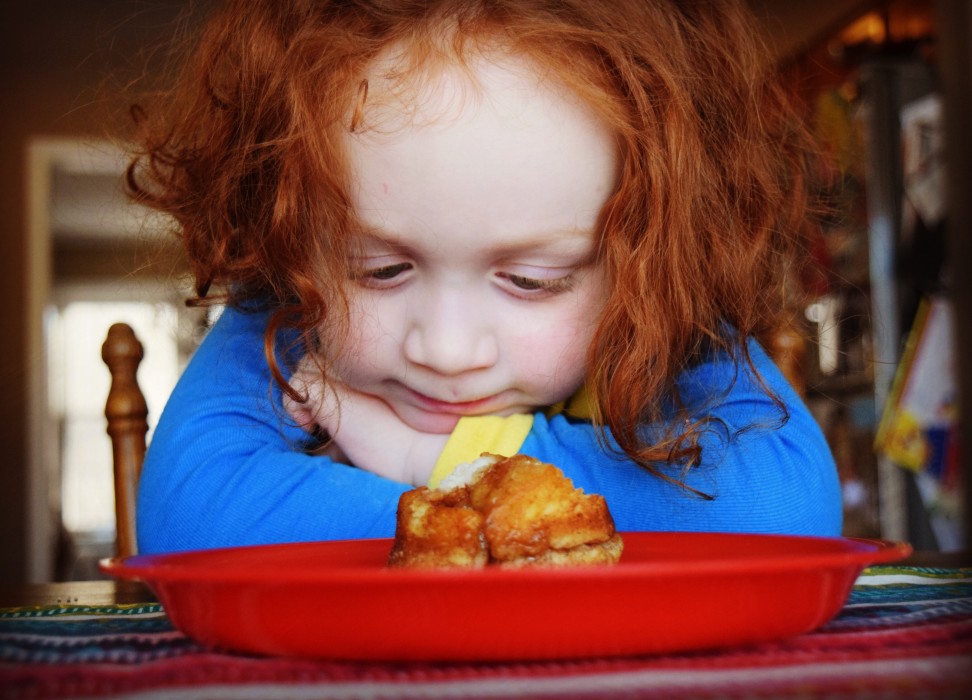Is your child exacting — or obsessive?
Stunning instances of outrageous fastidious eating have been drumming up some excitement online as of late. Prior this week, 20-year-old Austin Davis, from Florida, knocked some people’s socks off when he uncovered he’d eaten only macintosh and cheddar for a long time. They has organization in Jade Youngman, a 25-year-old Brit who as of late became a web sensation for her prohibitive eating routine of dairy, straightforward carbs and handled meats. At that point, there’s the mysterious 17-year-old subject of an examination distributed in September’s Annals of Internal Medicine: His dietary shortfalls made him go lawfully daze in the wake of declining to eat anything aside from french fries, white bread, potato chips and prepared ham.
Presently, “numerous children are fastidious eaters,” Dr. Natalie Muth, pediatrician and creator of “The Picky Eater Project,” discloses to The Post. Neophobia, or dread of new nourishments, is “exemplary” in babies; kids will in general develop out of it in the wake of difficult a nourishment 15 to multiple times, or when they go to class and see their cohorts eating an assortment of nourishments. Outrageous cases, similar to the ones standing out as truly newsworthy at the present time, are moderately uncommon.
In any case, such scenes are likewise bad dream fuel for mothers and fathers of finicky eaters — not every one of whom develop out of it by preschool. And keeping in mind that lesser’s broccoli refusal may for sure be transitory, it can feel like the Hot Dogs Only stage will endure forever when they’re in it.
So how might they tell if your child is a normal veggie-phobe or on the off chance that they’re experiencing a progressively genuine square with nourishment?
To begin with, Muth says, ensure they’re carrying out your responsibility as a parent. An excessive number of mothers and fathers are reluctant to release their children to bed hungry. Doing so isn’t just OK, however “prescribed,” says Muth, who includes that particular eating possibly turns out to be more terrible when guardians surrender to a youngster’s requests.
At that point, search for the formative markers. Around age 3, most children normally become increasingly open to eating different things, yet on the off chance that that doesn’t occur, guardians ought to inquire as to whether it may be a progressively difficult issue.
The greatest sign that it is? At the point when a kid quits developing or isn’t meeting their weight and stature necessities, says Dr. Evelyn Attia, chief of the Columbia Center for Eating Disorders at Columbia University Medical Center.
Cases like those may point to a condition called ARFID, which represents Avoidant Restrictive Food Intake Disorder. The condition, which was added to the DSM-V in 2013, causes a dread of the demonstration or impression of eating certain nourishments. Sufferers aren’t just specific: Some have tangible troubles, and some are hesitant to eat on the grounds that they figure they may stifle or regurgitation. The emotional wellness issue will in general be behind the more extraordinary cases that make the news.
That was the situation for McKaelen Elliot from Scottsdale, Arizona. For a long time, Elliot just ate a couple of things: waffles, plain bagels, nutty spread, pizza without cheddar or sauce and french fries. The main products of the soil she devoured were apples or child carrots.
“I came up with reasons like, ‘I’m not eager,'” says Elliot, presently 20 and a doula. She says she was startled of hurling on the off chance that they ate certain nourishments. During supper with her family, “They would have whatever my mother arranged, and I would have microwaved waffles with chocolate chips. That would be my morning meal, as well.” If their mother, Stephanie, attempted to get Elliot to eat something new, they would shout and cry, or abstain from going to suppers out and out.
For a considerable length of time, specialists and advisors expelled it as an instance of exacting eating. Be that as it may, as they developed more established, it began to meddle with their life.
“Dating scared me,” Elliot says. “[What if] they needs to take me for a fancy meal and all They need to eat are french fries?”
So in 2014, at 15 years old, they chose to look for further proficient assistance. At a dietary problem facility, Elliot was determined to have ARFID. Neither they nor her folks had ever known about it, yet it all of a sudden disclosed how she’d identified with eating for quite a long time.
Elliot entered treatment there, which included individual and gathering treatment, just as themed bunch suppers.they recollects a leap forward at one, when a companion offered their a bit of banana.they attempted it without intuition — and couldn’t trust themself. “Everyone was so pleased, they all cheered,” Elliot says.
Today, in the wake of experiencing treatment, Elliot eats nearly everything.Their present most loved is burritos from Chipotle.
“Old McKaelen wouldn’t eat anything in a burrito,” says the previously finicky cafe, whose mother distributed a novel called “Dismal Perfect” about their battles.
“Never ever did I figure I would arrive,” they says. “All that pressure and uneasiness is no more.”
Disclaimer: The views, suggestions, and opinions expressed here are the sole responsibility of the experts. No Chicago Headlines journalist was involved in the writing and production of this article.





